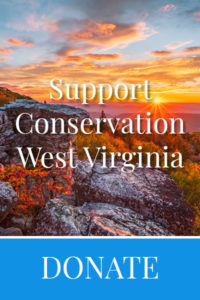The Montana Children’s Climate Lawsuit
Montana is a lot like West Virginia – rural, sparsely populated, scenic, and dominated by coal interests. There is one significant difference. In the 1970s, Montana amended its constitution to create a right on behalf of citizens to “a clean and healthful environment.” That provision was the basis of a stunning legal victory on August 14, 2023, by sixteen young people who challenged a Montana law that barred consideration of climate impacts during the environmental review of fossil fuel projects.
The case, Held v. State of Montana, was heard in a Montana state trial court. The Judge found that Montana youth are being harmed by climate change, a necessary predicate for any relief. One plaintiff with asthma described being a prisoner in his own home during a period of intense wildfire smoke. Another described how extreme weather harmed her family’s ranch.
The Judge ruled that there was a connection between these injuries and the state’s emissions, which could be traced to the legal provision blocking the review of climate effects from energy projects. She found the state’s law unconstitutional.
Attorneys for the state argued Montana’s contribution to global greenhouse emissions is small and awarding victory to the plaintiff would have “no meaningful impact or appreciable effect.” But the state chose not to challenge the evidence of harm to the individual plaintiffs or the connection between fossil fuel production and climate change. Afterward a spokesman for the Montana Attorney General called the ruling absurd and promised an appeal.
The Judge made clear that she did not have the power to order Montana to create a plan to address climate change. Nevertheless, the fossil fuel industries reacted to the case by claiming that there would be fewer permitted energy projects in the state and that complex litigation would slow them down. A spokesman for the Montana Petroleum Association said the decision would cause great economic harm to the state of Montana. Where have we heard that before?
Montana’s constitutional provision is known as a “green amendment.” Green amendments were added to the constitutions of Pennsylvania, Montana, Hawaii, Massachusetts, and Illinois in the 1970s. In 2022 New York also added one to its constitution. Several other state legislatures have considered green amendments – including in West Virginia – but no others have passed.
West Virginia’s proposed green amendment, modeled on the one in Pennsylvania, was offered in 2019. It read:
The people have a right to clean air, pure water, and the preservation of the natural, scenic, historic, and esthetic values of the environment. West Virginia’s public natural resources are the common property of all the people, including generations yet to come. As trustee of these resources, the State shall conserve and maintain them for the benefit of all the people.
This proposed amendment never emerged from committee, although it could be reintroduced in a subsequent legislative session.
West Virginia’s Green Amendment would substantially change the legal landscape regarding environmental rights and law. Presently, any rights to environmental cleanliness are created by statute or regulation. For example, DEP regulations now govern the amount of various chemicals that are permitted in our drinking water. The determination of what is permissible is heavily influenced by the industries that are affected by the regulation.
With a Green Amendment, the people’s right to a clean and healthy environment would occupy a higher order of legal significance. Statutes and regulations would have to be consistent with the right or be subject to rejection in a court as unconstitutional. If the West Virginia Legislature or the DEP created a statute or regulation affecting the cleanliness of drinking water, they could do so only after considering how the protected environmental rights could be preserved with the least impact. This is a feature of acting as a trustee of those rights. Where protected environmental rights would be destroyed, no governmental action could be taken.
What a wonderful world it could be.

